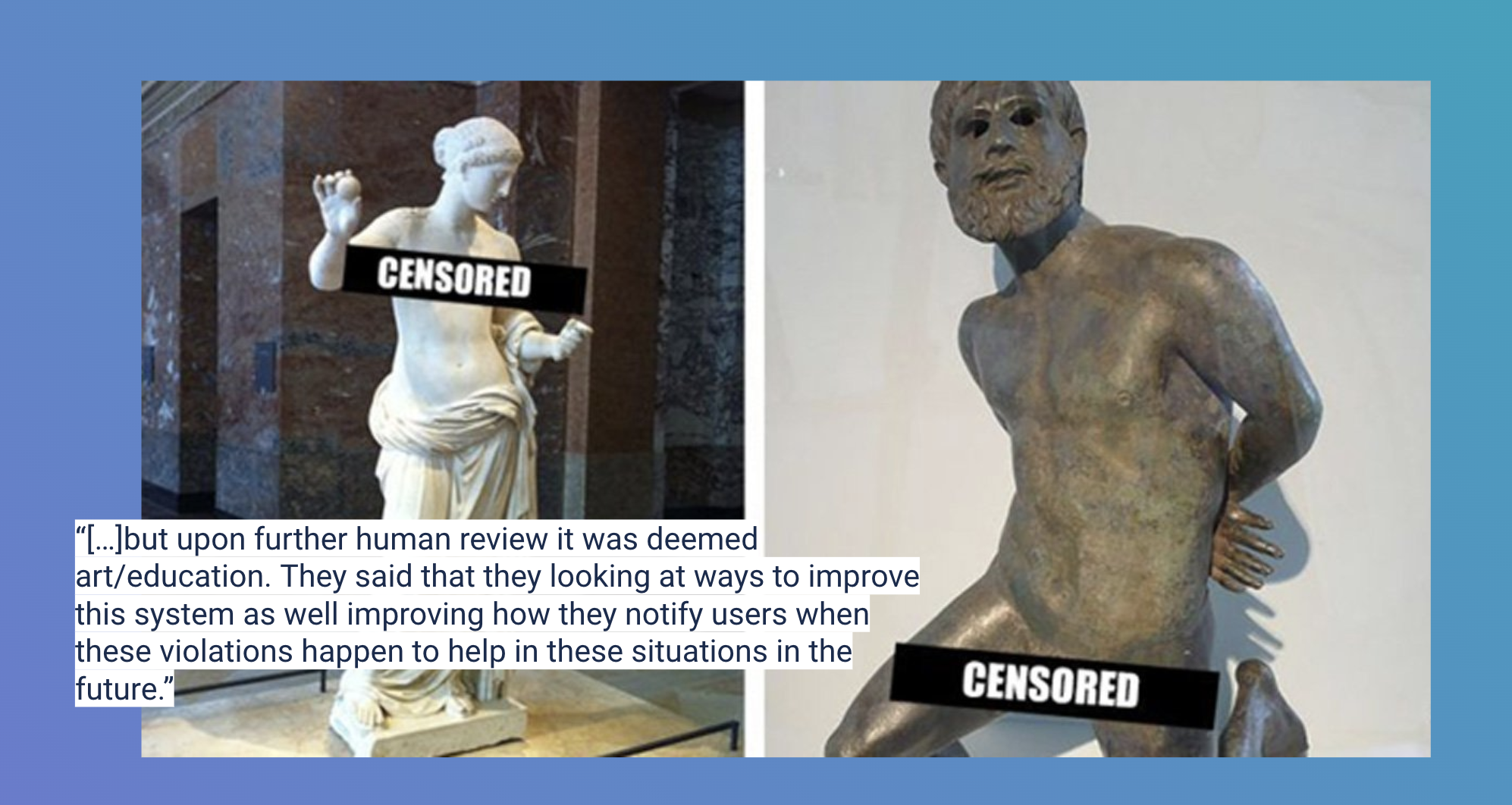English majors make great product managers.
Full stop. End of degrees needed.
Okay, fine, I'll admit that I'm incredibly biased in making that claim. I, proudly, have a BA in English, and I work as a Product Manager in the SaaS industry. Obviously, I am going to think that English majors make great product managers.
But hear me out on this one. English degrees deserve more respect– here's why.
The Degree-to-Job Framework Most Universities Promote is Not Accurate
In undergrad, my university's English department created a course to expose English majors to various post-graduation job and study opportunities. Before creating that course, students had gone to the university's career development center to ask about their job prospects. They were dismissively told that with an English degree, they could be someone's secretary or a barista.
What my alma mater's totally thoughtful career services department imparted to those students was an outdated mentality about education that simply isn't accurate in the modern workplace. Total vote of confidence for that department staying up-to-date in their field, right?
The career counselor's thought process seemed to be a reductive one: as an English major you read books, and there aren't real careers where you can get by on being able to read.
First, that's a massive misunderstanding of the skills you acquire in an English degree program.
Second, it is an outdated framework for conceptualizing career viability. They seem to think that employers will look at your major, see you studied the humanities, and toss your resume into the trash.
I semi-frequently interview for positions that pay six figures. Care to guess how often I've factored someone's field of study into my decisions?
Never. Zero times. Zilch. Nada.
Of course, I read over their resumes and CVs, and I'm sure that their field of study is listed there, but I never really give it a second thought. I'm far more concerned with what they've done than what they've studied.
The Modern Career Pipeline
This idea that you have to have a degree in a certain field of study to get a rewarding job is misguided. I understand where that misconception comes from, and I recognize that some degree programs foster networking connections that can make getting your foot in the door easier.
And yet, cases of nepotism aside, I'd wager that STEM and business degrees aren't guaranteed career ease, in the long run, any more than humanities students for a few reasons that directly tie back to the skills you nurture as an English major.
What You Do is More Important than What You Studied
The old aphorism is that who you know is more important than what you know, and, unfortunately, that is often the case in the professional world.
However, a step down from that is that what you do is more important than what you studied.
Creating a financially and emotionally rewarding career often requires paying your dues and climbing the ladder. If you get out of undergrad and expect to step into a high-paying leadership position, regardless of what you studied, you will be in for a rude awakening.
That's why my constant career advice is to pick a company you like, not a role you like, to get your foot in the door. From there, look for opportunities to leverage your skills and drive impact in a meaningful and visible way. The more consistently you do this, the more career opportunities will open up.
My Journey from Entry Level to Product Leadership
I essentially stumbled into my advice about picking a company and not a role by accident.
After undergrad, I worked at a local university as an academic advisor and absolutely detested working there. My job sucked and I didn't have it in me to stick it out longer than a year.
It was a rough wake-up call. I spent some time freelancing (i.e. making no money and living off my savings from my university job) before deciding that I needed to get a job– any job– to work for a year and rebuild my savings before going to grad school and starting to work toward my Ph.D.
At that time, going into academia made the most sense to me. It had been my goal for several years at that point. To this day, I think it could have been a great career decision, but (spoiler warning) I'm ultimately glad I shifted direction when I did.
As a student and recent grad, I had minimal exposure to life outside academia. Researching and writing were the only two skills in which I felt confident. While I didn't have much experience with teaching, my friends will attest to the fact that I love giving a lengthy diatribe about literature and critical theory.
Because I had come out of a university with a fairly outdated mentality about employment and the only skills I knew I had were suited to academia, I pigeonholed myself and my prospects to that career path.
So, to rebuild my savings before grad school, I took the first entry-level job at a cool company that I could find– customer support at HubSpot.
I Am Not Cut Out for Customer Support
I started in Customer Support in 2017, making virtually no money (especially compared to my cost of living in Los Angeles at that time), and doing work that, to me, was highly stressful.
I am not confrontational, and when people call customer support for a software question, they're ready to fight. Less than three months into the role, I was performing as well as I expected, but I was constantly nauseous and stressed out from doing the work.
Despite all that I disliked about the role, there were aspects I did like. I enjoyed coaching newer teammates on the things I had learned. I found HTML and CSS to be fun puzzles to play around with. My manager pushed me to think about ways I could drive impact, and I leaned into the world of HTML and CSS, making myself the go-to resource for support in the west coast customer support team.
As I approached the one-year mark, I had a choice to make. Moving from Kentucky to LA meant that my savings had not recovered nearly enough to feel comfortable about going to grad school, but I also didn't know if I had it in me to continue working longer as a customer support representative.
I had to find a new job or bite the bullet and send out grad school applications.
Erring on the side of fiscal caution, I applied to another internal role: Product Expert (PE).
At HubSpot, Product Experts essentially sit between customer support and product teams. If a question comes in that customer support can't handle, they file an issue that Product Experts review. PEs then either provide assistance in resolving the issue or they triage it to engineering to be treated as a bug.
As a PE, I was the liaison for our SEO tools and CMS Publishing teams. That meant I had direct exposure to blogging, page creation, SEO, and data analytics tools. Working in these fields day in and day out, I became immersed in the world of content creation, strategy, and analytics.
Importantly, this allowed me to begin thinking at the macro level rather than the micro level. As a customer support rep, you have to be in the weeds on each individual issue that comes your way. As a Product Expert, I was positioned to start thinking about trends and high-level concerns that came up repeatedly.
Even though the change of pace was refreshing, it still wasn't what I wanted to do long term. I kept an eye on grad schools until one of the product teams I was working with opened a new Associate Product Manager (APM) position and the acting Product Manager encouraged me to apply for it. To him, my knowledge of content and SEO would be an asset to the team, and he felt confident that I could handle to responsibilities of a PM.
I wasn't convinced, but I knew that if I got the position, it'd be a significant boost in income. So, I applied.
In applying, I did what English majors do best– I read. I devoured books on product management and the software development lifecycle. I read books on AGILE and SCRUM practices. I read books about leadership skills.
By the time interviews were scheduled, I had essentially created and completed an entire syllabus of PM literature for myself. (If any academic chairs or tenured professors want to create an "ENG-420: Critical Reading in Business Fields" course, I'm willing to send my reading list for your syllabus.)
I went through the interview process and, not to toot my own horn, I crushed it. My deep reading list had me well-informed and excited about discussing product development and management within the company I had come to respect and enjoy.
And... I didn't get the job. It went to someone equally well-read and capable, who I still work with regularly and respect.
But, there's something beautiful about working your way up as an internal candidate rather than an external candidate.
I did not apply for any more Product Management roles– I was selected to interview for them. Because I had developed a reputation internally as someone who sought out opportunities to drive impact (such as becoming the go-to resource for HTML/CSS questions as a support rep and the SEO guru of the PE team) and because I had done well in my first series of interviews, hiring managers hand-picked me for their hiring slates.
Product Management roles are highly competitive. I was hand-picked for three more roles, skipped the first two rounds of interviews for each, and ultimately lost out on the roles to someone else.
Just as I was ready to take a break from interviewing and settle back into my PE routine, a recruiter asked me if I would be willing to interview for one more APM role. I acquiesced, met with the hiring manager and director, and within a month, accepted their job offer.
Throughout the interview and ramping up process in my new role, I realized that my background as an English major served me well. I was not hired into a strategic leadership role in spite of my background in the humanities– I got the job because of my background.
The Skills that Make English Majors so Valuable in the Professional World
As mentioned in my interview prep process, I read a lot. Being able to read and retain broad swathes of conceptual information is a huge asset regardless of what career you're going into. Reading comprehension is more than a testing category– it's an invaluable asset. If you can make your way through a Faulkner novel and find meaning and beauty, you are more than capable of dissecting complex business case studies, technical documentation, or theoretical strategic documentation.
But the valuable skills of being an English student go much deeper than that.
In Product Management, I define the strategy for how my products develop over time. I look at the business' high-order goals and work backward, defining the steps my teams need to take and the problems we'll need to solve to drive the most impact for the business in meeting those goals.
To do that, I often have to sort through disparate, conflicting, and complex data sources to create order and meaning for my engineering teams. Do you know where else you have to synthesize complex and sometimes conflicting ideas into a comprehensible line of thought? Literary criticism.
Beyond that, as you synthesize complex data and ideas, you must clearly communicate what it means. You often do that in the form of writing memos and documentation. If you've ever read a standard business memo, you know that they're awful and boring– but they're awful and boring because most people don't know how to tell stories that are supported by data and research. English majors do.
Writing that is easy to read is incredibly hard to write, but that's a muscle you learn to flex as an English major.
I recognize that my own experiences very well could be an outlier. But, I don't think it's a coincidence that among my colleagues, some of the most successful product managers I know have backgrounds in:
- Women's and Gender Studies
- Linguistics
- Traditional Dance
- Philology
- Rhetoric and Composition
And, of course, English Literature.




